Memory leaks caused by closures include: 1. Infinite loops and recursive calls; 2. Global variables are referenced inside the closure; 3. Uncleanable objects are referenced inside the closure. Detailed introduction: 1. Infinite loops and recursive calls. When a closure refers to an external variable internally, and this closure is repeatedly called by external code, it may cause a memory leak. This is because each call will cause a memory leak in the memory. Create a new scope in the scope, and this scope will not be cleaned up by the garbage collection mechanism; 2. Global variables are referenced inside the closure, if global variables are referenced inside the closure, etc.

The operating system for this tutorial: Windows 10 system, DELL G3 computer.
Closure is an important concept in JavaScript, which allows a function to have private variables and access these private variables outside the function. However, if closures are used incorrectly, they can cause memory leak issues. The following are some common situations of memory leaks caused by closures:
1. Infinite loops and recursive calls: When a closure refers to external variables internally, and the closure is repeatedly called by external code , it may cause a memory leak. This is because each call creates a new scope in memory, and this scope is not cleaned up by the garbage collection mechanism. If this closure does not properly clean up external variables, then these variables will remain in memory until the program ends.
function outerFunction() {
var outerVariable = new Array(1000000).fill(0);
var innerFunction = function() {
// 这里引用了外部变量 outerVariable
console.log(outerVariable);
}
return innerFunction;
}
var leakyFunction = outerFunction();
leakyFunction(); // 这里的调用会创建新的作用域并引用 outerVariable,导致内存泄漏2. Global variables are referenced inside the closure: If a global variable is referenced inside the closure and the reference to the global variable is not cleared at the appropriate time, then the global variable will always exist in memory. until the program ends.
var globalVariable = new Array(1000000).fill(0);
var closure = (function() {
// 这里引用了全局变量 globalVariable
return function() {
console.log(globalVariable);
}
})();
closure(); // 这里的调用会创建新的作用域并引用 globalVariable,导致内存泄漏3. Non-cleanable objects are referenced internally in the closure: If non-cleanable objects are referenced internally in the closure (such as the closure itself, functions, DOM nodes, etc.), then these objects will always exist in memory. until the program ends.
var leakyObject = { toString: function() { return "leaky"; } };
var closure = (function() {
// 这里引用了不可清理的对象 leakyObject
return function() {
console.log(leakyObject);
}
})();
closure(); // 这里的调用会创建新的作用域并引用 leakyObject,导致内存泄漏In order to avoid memory leaks caused by closures, we need to pay attention to the following points:
Try to avoid using closures when there is no need to use them. For example, you can use static methods or classes instead of closures.
When using closures, try to avoid referencing global variables or non-cleanable objects inside the closure. If references must be made, references to them should be cleared promptly after use.
When using recursion and loops, you should ensure that each call ends at the appropriate time to avoid memory leaks caused by infinite loops and recursive calls.
The above is the detailed content of What are the memory leaks caused by closures?. For more information, please follow other related articles on the PHP Chinese website!
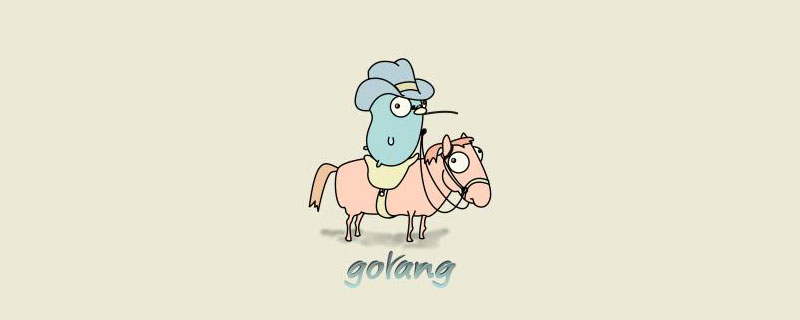 一文浅析Golang中的闭包Nov 21, 2022 pm 08:36 PM
一文浅析Golang中的闭包Nov 21, 2022 pm 08:36 PM闭包(closure)是一个函数以及其捆绑的周边环境状态(lexical environment,词法环境)的引用的组合。 换而言之,闭包让开发者可以从内部函数访问外部函数的作用域。 闭包会随着函数的创建而被同时创建。
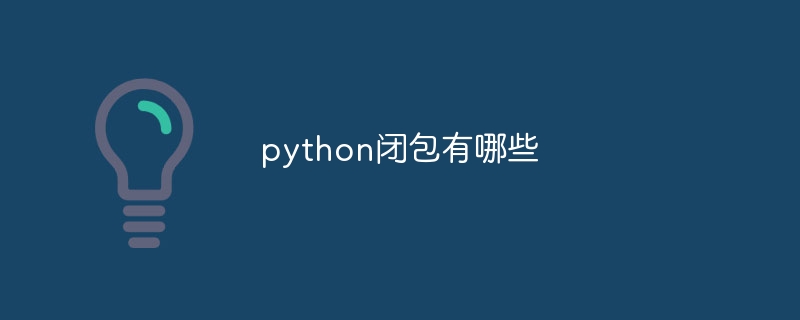 python闭包有哪些Oct 30, 2023 pm 04:53 PM
python闭包有哪些Oct 30, 2023 pm 04:53 PMpython闭包主要包括函数闭包和装饰器闭包。详细介绍:1、函数闭包是指在一个函数内部返回另一个函数,并且返回的函数能够访问到其内部变量。这样的返回函数就是函数闭包,函数闭包在程序中可以被反复使用,因此可以用来实现一些功能上的封装;2、装饰器闭包是指在使用装饰器时,被装饰的函数并没有直接被调用,而是被包装在一个函数内部,并返回一个新的函数。这个新的函数就是一个装饰器闭包等等。
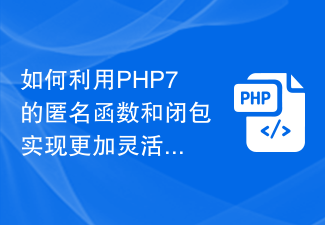 如何利用PHP7的匿名函数和闭包实现更加灵活的代码逻辑处理?Oct 21, 2023 am 10:21 AM
如何利用PHP7的匿名函数和闭包实现更加灵活的代码逻辑处理?Oct 21, 2023 am 10:21 AM如何利用PHP7的匿名函数和闭包实现更加灵活的代码逻辑处理?在PHP7之前,我们经常使用函数来封装一段特定的逻辑,然后在代码中调用这些函数来实现特定的功能。然而,有时候我们可能需要在代码中定义一些临时的逻辑块,这些逻辑块没有必要创建一个独立的函数,同时又不想在代码中引入太多的全局变量。PHP7引入了匿名函数和闭包,可以很好地解决这个问题。匿名函数是一种没有名
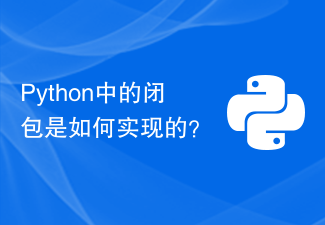 Python中的闭包是如何实现的?Oct 21, 2023 am 10:33 AM
Python中的闭包是如何实现的?Oct 21, 2023 am 10:33 AMPython中的闭包是如何实现的?闭包是一种函数内部定义的函数,并且在函数内部引用了外部函数的变量。这种特性使得内部函数可以访问外部函数的变量,并且在外部函数执行完毕后,闭包仍然可以访问和操作外部函数的变量。闭包在Python中通过以下几个步骤来实现:定义外部函数,并在其中定义内部函数:首先,我们需要在外部函数内部定义一个内部函数。这个内部函数即是闭包。de
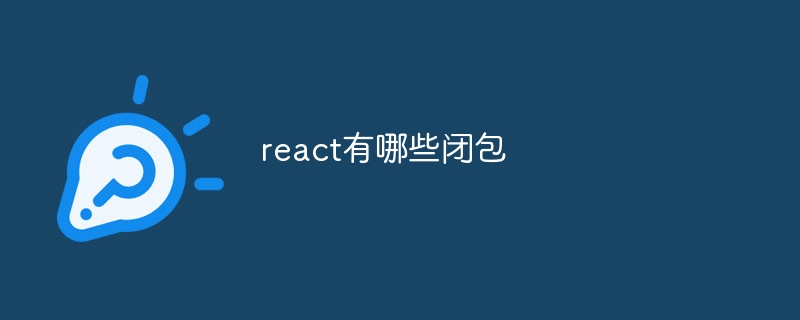 react有哪些闭包Oct 27, 2023 pm 03:11 PM
react有哪些闭包Oct 27, 2023 pm 03:11 PMreact有事件处理函数、useEffect和useCallback、高阶组件等等闭包。详细介绍:1、事件处理函数闭包:在React中,当我们在组件中定义一个事件处理函数时,该函数会形成一个闭包,可以访问组件作用域内的状态和属性。这样可以在事件处理函数中使用组件的状态和属性,实现交互逻辑;2、useEffect和useCallback中的闭包等等。
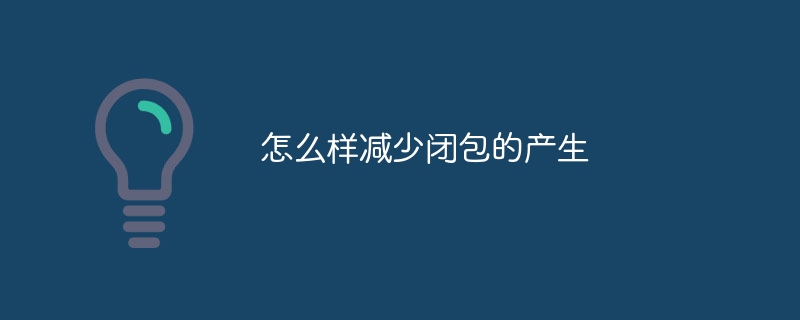 怎么样减少闭包的产生Oct 27, 2023 pm 04:28 PM
怎么样减少闭包的产生Oct 27, 2023 pm 04:28 PM减少闭包产生的方法有避免不必要的闭包、控制闭包的返回值、使用弱引用、减少不必要的全局变量、合理使用循环和递归、使用事件代理、编写单元测试、遵循设计原则和使用工具进行代码分析等。详细介绍:1、避免不必要的闭包,在很多情况下,闭包并非必需的,可以用模块模式来实现私有变量,避免使用闭包;2、控制闭包的返回值,在使用闭包时,应该尽量控制闭包的返回值,如果闭包返回的是基本数据类型等等。
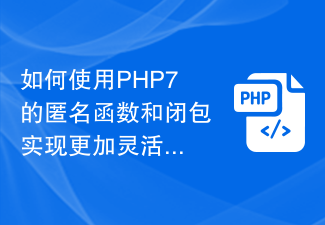 如何使用PHP7的匿名函数和闭包实现更加灵活和可复用的代码逻辑?Oct 24, 2023 am 10:30 AM
如何使用PHP7的匿名函数和闭包实现更加灵活和可复用的代码逻辑?Oct 24, 2023 am 10:30 AM如何使用PHP7的匿名函数和闭包实现更加灵活和可复用的代码逻辑?在PHP编程领域中,匿名函数和闭包是非常有价值和强大的工具。PHP7引入了一些新的语言特性,使得使用匿名函数和闭包更加方便和灵活。本文将介绍如何使用PHP7的匿名函数和闭包来实现更加灵活和可复用的代码逻辑,并提供一些具体的代码示例。一、匿名函数匿名函数是一种没有名称的函数。在PHP中,可以将匿名
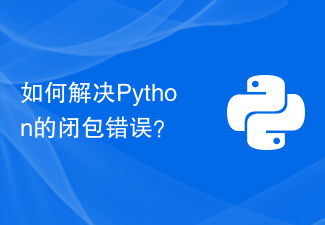 如何解决Python的闭包错误?Jun 24, 2023 pm 11:23 PM
如何解决Python的闭包错误?Jun 24, 2023 pm 11:23 PMPython是一种非常流行的编程语言,因为它非常易学易用,同时也具备了强大的功能。其中,闭包是Python中的一种函数,它可以在函数的内部定义另一个函数,并返回这个函数作为函数的返回值。尽管闭包非常方便,但有时会出现某些错误,比如闭包错误。本文将介绍如何解决Python的闭包错误。初步了解闭包在Python中,闭包是由一个内部函数和一个定义在内部函数之外的函


Hot AI Tools

Undresser.AI Undress
AI-powered app for creating realistic nude photos

AI Clothes Remover
Online AI tool for removing clothes from photos.

Undress AI Tool
Undress images for free

Clothoff.io
AI clothes remover

AI Hentai Generator
Generate AI Hentai for free.

Hot Article

Hot Tools

SublimeText3 Mac version
God-level code editing software (SublimeText3)

MantisBT
Mantis is an easy-to-deploy web-based defect tracking tool designed to aid in product defect tracking. It requires PHP, MySQL and a web server. Check out our demo and hosting services.

MinGW - Minimalist GNU for Windows
This project is in the process of being migrated to osdn.net/projects/mingw, you can continue to follow us there. MinGW: A native Windows port of the GNU Compiler Collection (GCC), freely distributable import libraries and header files for building native Windows applications; includes extensions to the MSVC runtime to support C99 functionality. All MinGW software can run on 64-bit Windows platforms.

WebStorm Mac version
Useful JavaScript development tools

Safe Exam Browser
Safe Exam Browser is a secure browser environment for taking online exams securely. This software turns any computer into a secure workstation. It controls access to any utility and prevents students from using unauthorized resources.






